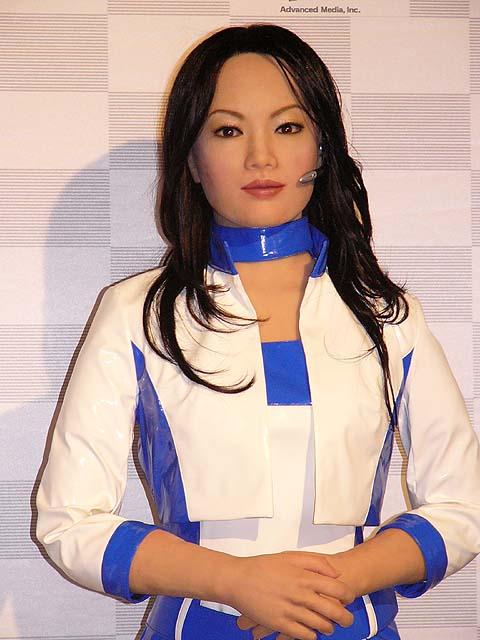Why is Japan unlike any other place on Earth, not just in the way that all nations are unique, but in a deeper and stranger way? What’s with the monkey waiters, the karaoke machines, the warm embrace of lifelike robots and the penchant for personal electronics and hardcore porn long before the rest of the world joined in? My guess would be that the chief ingredients are a homogenized populace, siding with Hitler during WWII and being on the receiving end of two atom bombs. In David Pilling’s Foreign Policy piece “Why Is Japan So…Different?” he examines the question in greater historical detail. An excerpt:
“Some foreign observers have been as enthusiastic about promoting Japan’s alleged uniqueness as the Japanese themselves. Of course, all nations are unique, but in Japan this truism became a fetish. The Japanese developed a form, which dates back to the Tokugawa era but which flourished in the post-World War II period, of quasi-philosophical writing called Nihonjinron, or ‘essays on the essence of Japaneseness.’ Written by both Japanese and foreigners, these tracts sought to explain what made the Japanese unique and how they differed from foreigners, who were, all too often, lumped into one homogeneous category. Such lines of inquiry often settled on a description of the Japanese as cooperative, sedentary rice farmers who use instinct and heart rather than cold, Western logic. Unlike Western hunter-gatherers, the Japanese were seen as having a unique sensitivity to nature, an ability to communicate without language through a sort of social telepathy, and a rarefied artistic awareness.
In 1946, U.S. anthropologist Ruth Benedict made it respectable to see the Japanese as a race apart with the publication of her classic study of Japanese culture, The Chrysanthemum and the Sword. She described a highly codified society operating with conventions all-but-incomprehensible to outsiders. Her work paved the way for shelf after shelf of Nihonjinron texts by Japanese authors. These multiplied with Japan’s post-war economic success, which the Japanese and foreigners alike began to attribute to the country’s supposedly unique organizational and social structures. Gavan McCormack, an Australian academic, describes Benedict’s book as ‘one of the greatest propaganda coups of the century.’ In stoking Japan’s own sense of its own uniqueness, he argues, the book helped sever Japan’s psychological ties with its Asian neighbors. ‘What they believed to be ancient tradition,’ he writes, ‘was quintessentially modern ideology.’
Japan’s perception of itself as isolated and different persists to this day, often to its disadvantage. It has, for example, hampered the country’s electronics industry: Japanese manufacturers often produce goods perfectly adapted to Japanese customers but of little global reach. It yearns for what it sees as its rightful place in the hierarchy of nations — it has for years waged a campaign to obtain a permanent seat in the United Nations Security Council. But whether defending whaling, or the rights of its leaders to worship at the controversial Yasukuni Shrine, which houses the ‘souls’ of more than 2 million dead Japanese soldiers, including 14 class-A war criminals from World War II, Japan often has a hard time explaining itself to the rest of the world.
Some in Japan, however, especially on the right, seem bent on preserving the mystique of a country that is somehow unintelligible to outsiders.”
____________________________
Monkey waiter in Japanese restaurant wearing lady mask:

